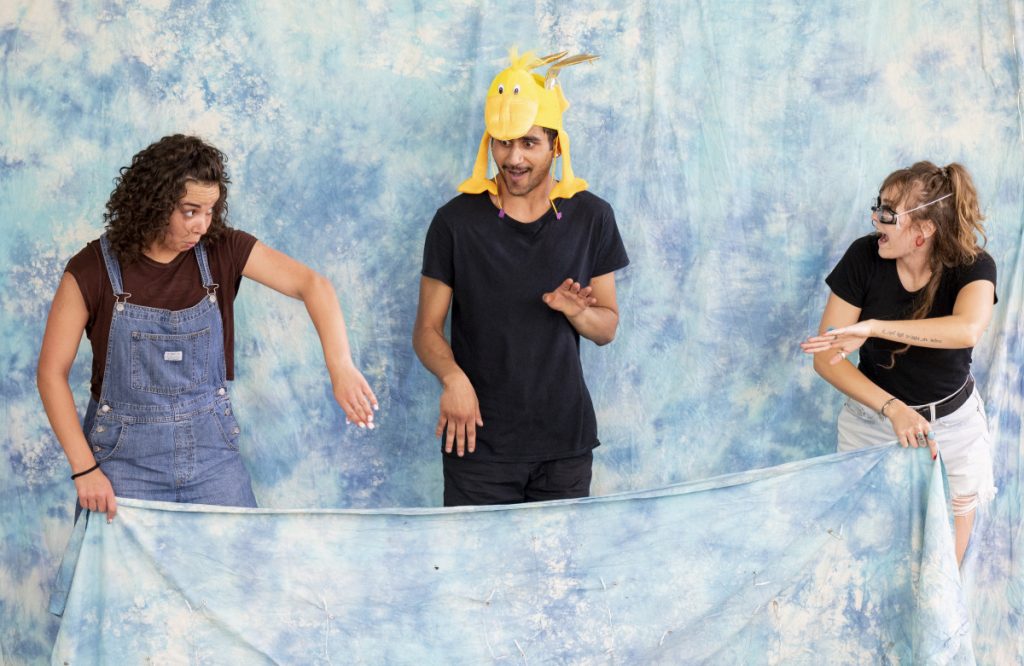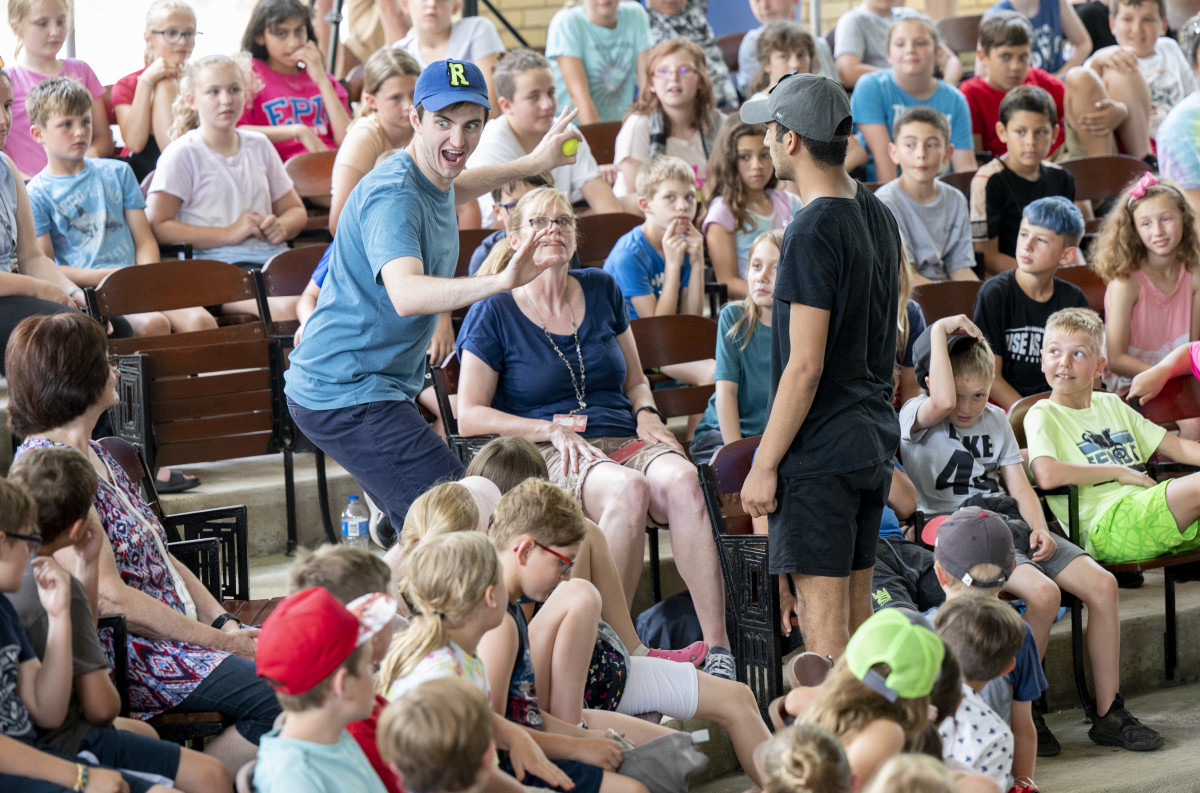A pair of best friends who enter a time warp and switch bodies. A heartfelt conversation between a mother and daughter about making mistakes. A cat who journeys to the North Pole and brings back a gift for her owner. This is just a small selection of the plays chosen for this year’s Young Playwrights Project.
The project works with third- and fourth-graders from local elementary schools to help them learn how to write plays and unleash their imaginations. The selected plays include Going to Cool School in Cool Town, by Brayden DeAngelo, a student at Hewes BOCES Educational Center, and The Shark and the Friendship, by Zaryiah Bradley of Ring Elementary. The 10 selected plays will be presented as part of Chautauqua Institution’s Family Entertainment Series when actors from Syracuse University’s drama department will perform them at 5 p.m. Tuesday, July 12, at Smith Wilkes Hall.
Chautauqua’s Young Playwrights Project started as a partnership with Florida Studio Theatre in 2015 and is modeled after that theater’s process. Students participate in three phases: a classroom workshop in January and February where teaching artists lead the students in improvisational games and present the fundamental elements of playwriting, a reading session by volunteers for students in March, and live performances in June. Now, those performances will be reprised during the season proper and for the Chautauqua audience. Suzanne Fassett-Wright, the director of arts education and one of the teaching artists, said that this structure introduces students to the real-life process of writing a play.
“Writing a play is a scaffolded process,” Fassett-Wright said. “These are third and fourth grade students, and this is their first experience with writing a play, so we wanted them to have an experience of the whole gamut, from writing the play, to workshopping the play a little bit in that reading phase, and then the final phase where 10 of them are performed.”
This year, students from six Chautauqua County elementary schools submitted over 400 plays. With the help of volunteer readers from Institution staff, past teaching artists and other community members, the project’s team narrowed them down to 10. Katie McGerr, teaching artist and director of plays for the project, said that they strove to choose plays that were representative of the whole.

“We wanted to recognize plays that were strong for different reasons,” said McGerr, who is also a professor of acting at Syracuse University. “As a director, I’m trying to also create an exciting half-hour, 45 minutes of theater for people of all ages, so having some variety in those plays is really critical to the integrity of the show and also demonstrates the diversity of imaginations and interests in our young playwright community.”
Imagination and self-expression are paramount for the Young Playwrights Project. The first phase featured teaching artists Zooming into classrooms and leading the students in games designed to activate their creativity. Students play games such as I Am a Tree where they imagine embodying different characters, such as humans, animals, inanimate objects and more. They are encouraged to discover their sense of play and envision what these characters might say to each other.
“We want to get their imagination lit up and empower them to say ‘yes’ to all of their ideas, to really feel free to express themselves,” Fassett-Wright said.
Phase one also teaches students about four essential building blocks of a play: character, setting, problem or conflict and dialogue. Students play different characters who communicate with one another in order to solve a problem or address a need. The character work helps to foster empathy, which McGerr said was another key goal of the project.
“The heart of the curriculum is to try giving the students the opportunity to explore the fact that if they have empathy, and can imagine themselves in someone else’s shoes, they can imagine what that person would say next,” she said. “And if they can do that, engage their teachers, engage a friend, step into character roles imaginatively, if we can help them record what they’re imagining and then teach them how to record it, then they can write a play. So really, all they need is empathy and imagination.”
Although the COVID-19 pandemic and the virtual teaching it necessitated have drawbacks, both Fassett-Wright and McGerr identified silver linings of remote programming. Fassett-Wright said that it allowed Chautauquans from all over the country to participate, teaching students or reading their work in the workshop phase. McGerr said that pre-pandemic, the teaching artists would act out the students’ fledgling stories, but now the students are the performers in the early stages.
“It’s been a little bit easier to engage the students as actors, just so that again, they keep making that connection between their empathy and the words on the page,” McGerr said.
Fassett-Wright said she and the rest of the team want to impart to students the importance of their words. She treasures seeing students’ reactions to their work being read and performed. McGerr noted that these reactions manifest in various ways, and she wants to honor any and all reactions that the students have, including shyness.
“We want to recognize that playwriting is vulnerable,” she said. “It’s vulnerable to share what you’ve created, and to share that vulnerability is equally brave, and to share whatever that feeling is, is equally important. So I think in either version, you see how personal, how individual, a student’s relationship is to what they’ve written. And I think in all scenarios, you’re seeing how impactful it is to say, ‘Come into my imagined world.’ ”





